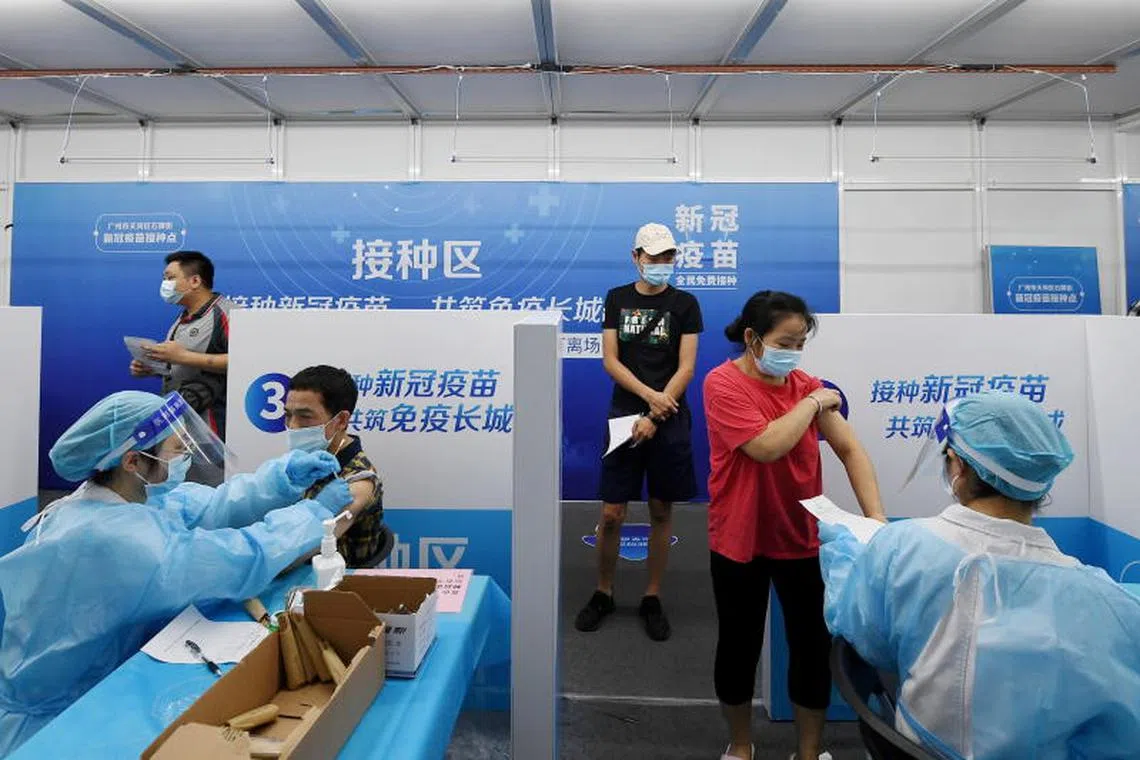China's Xi unwilling to accept vaccines despite threat from protests: US intel
Sign up now: Get insights on Asia's fast-moving developments

China has not approved any foreign Covid-19 vaccines, opting for those produced domestically.
PHOTO: REUTERS
WASHINGTON - Chinese leader Xi Jinping is unwilling to accept Western vaccines despite the challenges China is facing with Covid-19, United States director of national intelligence Avril Haines has said.
And while recent protests in China are not a threat to Communist Party rule, they could affect Mr Xi’s personal standing, Ms Haines added.
Although China’s daily Covid-19 cases are near all-time highs,
Ms Haines, speaking at the annual Reagan National Defence Forum in California on Saturday, said that despite the social and economic impact of the virus, Mr Xi “is unwilling to take a better vaccine from the West, and is instead relying on a vaccine in China that’s just not nearly as effective against Omicron”.
“Seeing protests and the response to it is countering the narrative that he likes to put forward, which is that China is so much more effective at government,” Ms Haines said.
“It’s, again, not something we see as being a threat to stability at this moment, or regime change or anything like that,” she said.
“How it develops will be important to Xi’s standing,” Ms Haines added.
China’s Foreign Ministry did not immediately respond to a request for comment sent on Sunday.
China has not approved any foreign Covid-19 vaccines, opting for those produced domestically, which some studies have suggested are not as effective as some foreign ones.
That means easing virus prevention measures could come with big risks, according to experts.
The White House said last week that China has not asked the US for vaccines.
One US official said there was “no expectation at present” that China would approve Western vaccines. “It seems fairly far-fetched that China would green-light Western vaccines at this point. It’s a matter of national pride, and they’d have to swallow quite a bit of it if they went this route,” the official said.
Ms Haines also said North Korea recognised that China was less likely to hold it accountable for what she said was Pyongyang’s “extraordinary” number of weapons tests this year.
Amid a record year for missile tests, North Korean leader Kim Jong Un said last week that his country intends to have the world’s most powerful nuclear force.
Speaking on a later panel, Admiral John Aquilino, the commander of the US Indo-Pacific Command, said China had no motivation to restrain any country that was generating problems for the US, including North Korea.
“I’d argue quite differently that it’s in their strategy to drive those problems,” Admiral Aquilino said of China.
He said China had considerable leverage to press North Korea over its weapons tests, but that he was not optimistic about Beijing “doing anything helpful to stabilise the region”. REUTERS


